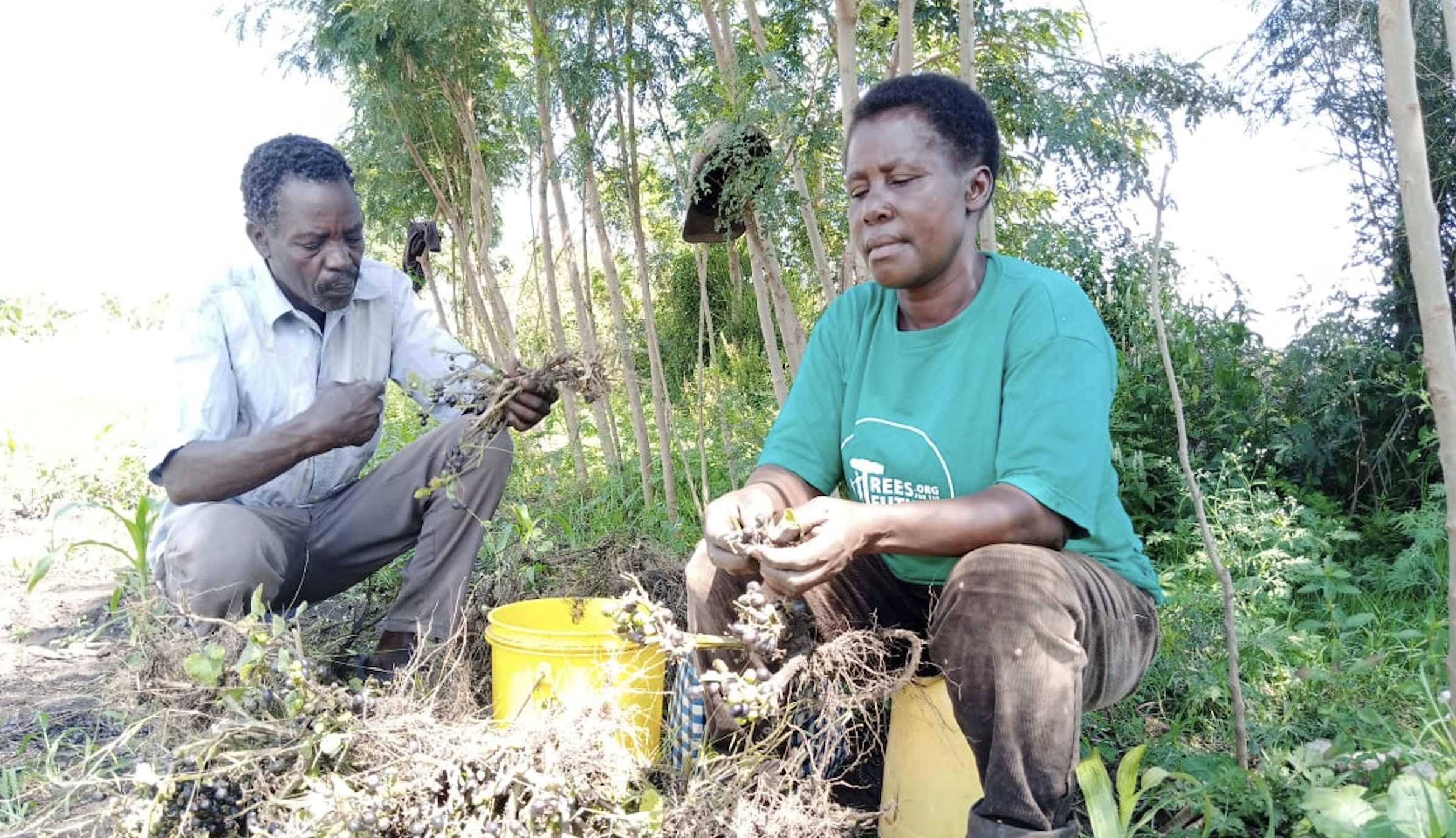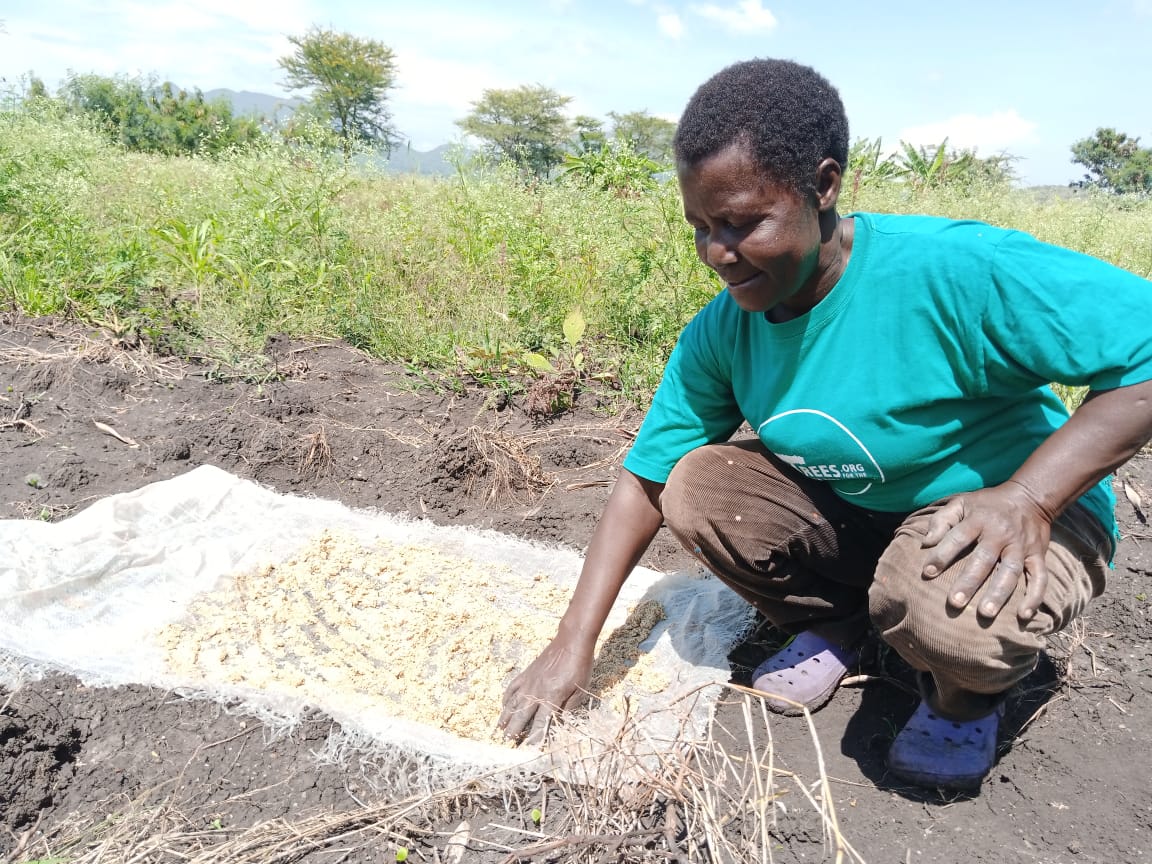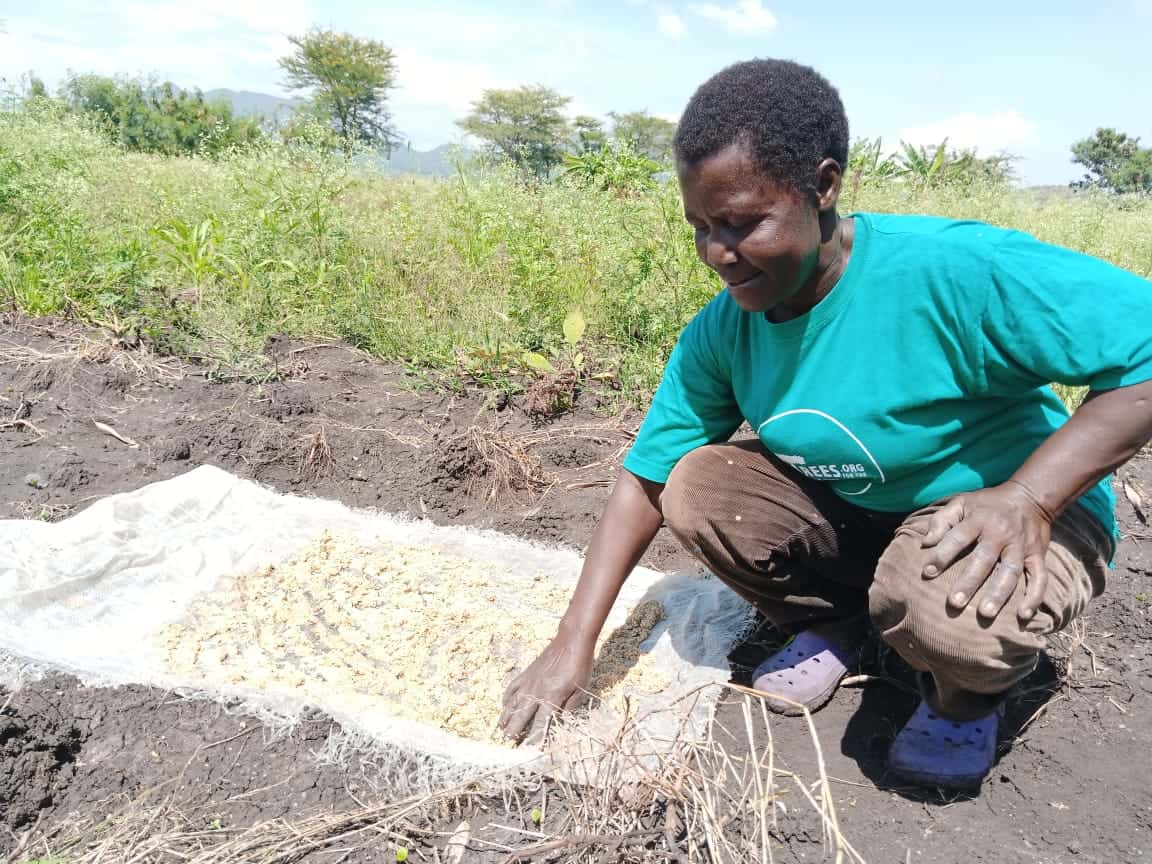
The 38-year-old mother of five used to focus her energy on growing just a few types of cereal grains. And, like many farmers in the developing world, she used what little income she made each harvest to buy the seeds for the following season.
“I have faced many challenges [and] low yields, this was frustrating as I could not meet my family’s needs,” Victoria says.
But that all changed in April, 2018 when she joined Trees for the Future’s Forest Garden Program and started learning how to improve her land and yields through agroforestry and sustainable practices. With vegetables like spinach, kale, onions, potatoes, and eggplants growing in her Forest Garden, Victoria has something for her family to eat and sell year round.
“What thrills me most is that there is something to be harvested in every single season,” she says.

What’s more is that she’s saving her precious income by harvesting her own seeds rather than spending it on expensive seeds from seed suppliers. Trees for the Future provides farmers with organic seed varieties that can be harvested and used year after year, unlike genetically modified seeds that produce fruit just once. Staff encourage farmers to harvest their own seeds and explore business opportunities – like selling those seeds. Victoria is passing on the knowledge she gained from Trees for the Future too. When she sells eggplant seeds, for instance, she says she advises her fellow farmers to practice crop rotation with crops like onions, cereals, or legumes to reduce disease and improve soil quality.
Today, with her farm and seed business, Victoria says she isn’t just meeting the family’s needs, she’s able to meet their wants as well.
